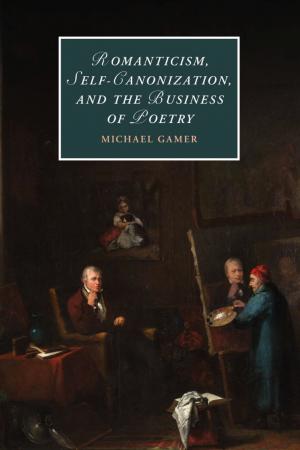Romanticism, Self-Canonization, and the Business of Poetry
Cambridge University Press
Description Contents Resources Courses About the Authors This is the first book to examine how Romantic writers transformed poetic collections to reach new audiences. In a series of case studies, Michael Gamer shows Romantic poets to be fundamentally social authors: working closely with booksellers, intimately involved in literary production, and resolutely concerned with current readers even as they presented themselves as disinterested artists writing for posterity. Exploding the myth of Romantic poets as naive, unworldly, or unconcerned with the practical aspects of literary production, this study shows them instead to be engaged with intellectual property, profit and loss, and the power of reprinting to reshape literary reputation. Gamer offers a fresh perspective on how we think about poetic revision, placing it between aesthetic and economic registers and foregrounding the centrality of poetic collections rather than individual poems to the construction of literary careers.
Brings readers interested in copyright and publishing history in dialogue with those interested in Romantic poets and poetry
Provides readers with an account of how Romantic poets' business and commercial activities informed contemporary representations of the poet, both by the writers themselves and by readers and reviewers
Reinserts writers into prevailing models of social authorship currently popular with readers of book history, which too often have excluded authors from their histories in order to foreground the role played by 'non-author authors' such as printers, typesetters, editors, booksellers, and publishers
Allows readers to consider how the packaging of books and the reordering of poetic collections directly contributes to questions of reputation and fame

 Department of English
Department of English
